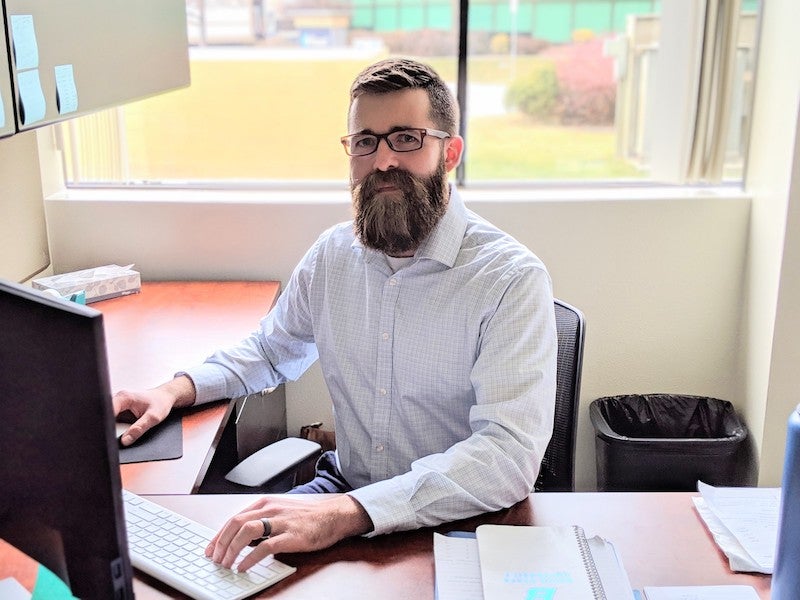
Luke Montrose, assistant professor in the Department of Community and Environmental Health, has been awarded a grant from the IDeA Network of Biomedical Research Excellence (Idaho INBRE) to fund a two-year pilot study related to Alzheimer’s disease. Montrose’s research represents a new facet of a study spearheaded by Stephanie Hall, assistant professor in the Department of Kinesiology, who is interested in learning more about how exercise can slow the progression of the disease.
“We know that people who have Alzheimer’s disease have low levels of the protein BDNF in their brain – a protein that helps to protect neurons,” said Montrose. “People who have exercised regularly all their lives have higher levels of this protein than people who have been less physically active.”
Hall has been able to replicate the hallmark traits of Alzheimer’s disease in rats, including neuron degradation. She hypothesized that the protein BDNF plays an important role in the relationship between exercise and the progression of Alzheimer’s, but needed an epigenetics specialist to study the tissue samples. That’s where Montrose’s part in the research will begin.
“My role is to examine what’s happening at the molecular level,” said Montrose. “If we understand how a protein like BDNF works in the body, then eventually we may be able to insert or activate it with a prescription drug.”
Montrose said a physically-active lifestyle may prove to be the first line of defense against Alzheimer’s, but it isn’t a solution that is accessible to everyone, and it may be too late to make a difference for those already battling the brain disease.
“By learning more about proteins like BDNF, we could potentially protect twice as many neurons from degeneration than with exercise alone,” he said.
“The work upon which Montrose and Hall are embarking is not only addressing a critical need, but it is emblematic of the kind of synergy that will set us apart as an institution,” said Robert Wood, director of the School of Allied Health Sciences.
Wood encourages faculty, students and community members with an interest in this line of inquiry to reach out to Montrose and Hall. “Embedded in the vision and mission of the School of Allied Health Sciences is the opportunity to leverage our unique array of expertise to advance our understanding of health and disease.”
Montrose will begin his research in fall 2019, following the life cycle and tissue collection of Hall’s primary study with rats.